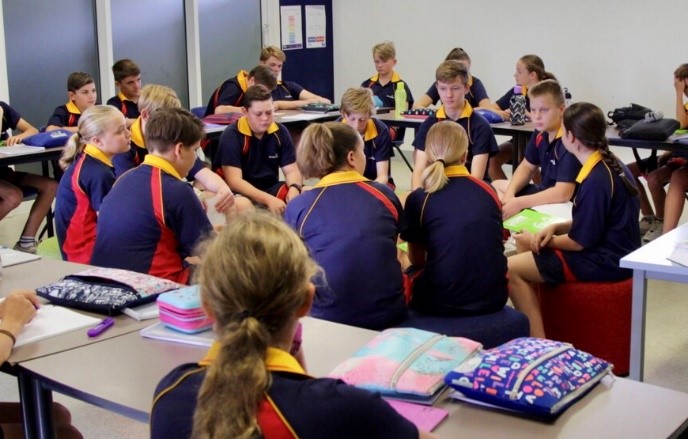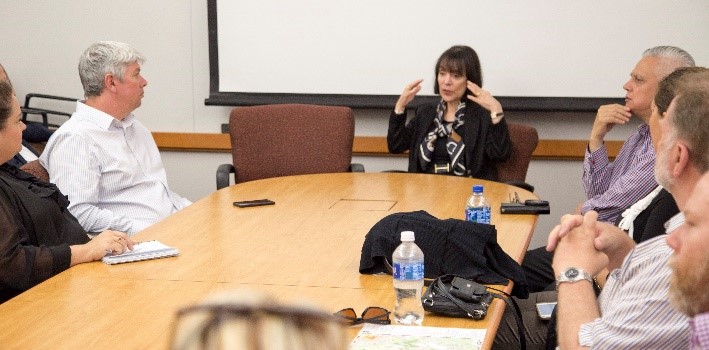Can a student’s home life be in natural conflict with a school’s contemporary transformation of learning?
Are our rural school communities advantaged when it comes to this transformation?
At the end of my recent visit to one of our lovely Country Schools, Redeemer Lutheran College, Biloela, I jumped in the car for a seven-hour drive back to Brisbane. During the drive I reflected and pondered on a wonderful PBL episode including a Socratic seminar which I witnessed in a class of year seven, eight and nine students. Throughout the journey, I was also listening to a podcast interview with Professor Carol Dweck. https://podtail.com/podcast/teachers-education-review/ter-093-growth-mindset-with-carol-dweck-11-ju/
During this Burnett highway drive, two interconnecting assumptions surfaced which needed further inquiry. I would have hoped to verify my assumptions by the time I reached the Bruce Highway however my car is not yet autonomous!The first episode of intrigue came from Professor Carol’s interview. While I have had a number of rich face to face meetings and communications with Carol over the last few years, I still find it exhilarating to hear about the past and current successes relating to the development of a growth mindset in learning.
During this recorded interview, there were again many stories and studies supporting the successes however there was a story about one particular study of school students who had a growth mindset intervention and seemingly improved in learning but not significantly. The next comment by the interviewer got me thinking as he quoted a related researcher who said “yes they didn’t improve because kids go home and then have contradicting conversations with parents who are not exposed to it”. Even though Carol then responded with the more robust reason why that particular study gave an unexpected result, the flippant comment by the other researcher got me thinking. We always need to remember as we engage in new pedagogies and thinking related to a contemporary transformation of learning which may be foreign to parents, our efforts may be inadvertently and unintentionally re-routed each evening.
Even Professor Carol Dweck highlights that empowering teachers with the right stuff to have meaningful growth mindset interventions with students is extremely challenging, so how can we expect busy parents to back us up successfully? Additionally, how can a traditionally schooled parent support their son or daughter effectively at home who is working on tasks which do not have right or wrong answers and may require the development of more questions through design thinking or deep empathy exercises in Project Based Learning? Unless parents are adept in new ways of learning through their current experience, occupation or research, the learning journey could have starts and stalls. Of course many educators are approaching this dilemma by educating parents or educating students to educate their parents in relation to new pedagogical approaches. Some may say this dilemma is one that has been around since the dawn of learning however I think it is always pronounced when there is a significant transformation or revolution in learning!
As I simultaneously pondered over this first dilemma, I began to recap on the day’s proceedings with the previously mentioned country students engaged in Socratic seminar and PBL. I began to think about how these students engaged in mature thought, discussion, empathy, familiarity and connectedness. It then dawned on me while I reflected on how I listened and watched and questioned why this Socratic seminar and PBL episode seemed extra special. These students are from a rural farming and mining area where there are lots of interconnectedness and common community amongst the group. As they discussed the topic about service organisations in their local town they related to familiar townsfolk, landmarks, history, relations, happenings and contacts which most of them knew intimately not due to their schooling, but due to their engagement and relationships in a small country town.
More so I also noticed that a culture of applied experiential learning came a little bit more naturally to this group. Could it be that Australia’s country farming and mining communities have always practiced the application of knowledge, ingenuity and innovation to stay authentic, relevant and competitive and this becomes inherent across the people in the community? After hanging around numerous farms in the past, I have believed that the diversity and drive by rural communities motivates them to leverage and apply learnings to solve or resolve issues and harness innovation. Whether it is using school chemistry to develop a more competitive Glyphospate, mathematical modelling and robotics to enable autonomous tractors or economics to control the market of a crop, these rural communities are never short on experiential learning and innovation.
This then ignited my second related dilemma:
Are contemporary models of learning and transformation scaffolded more readily in rural communities compared to city precincts thus enabling a much smoother journey for all?
Derek Bartels

